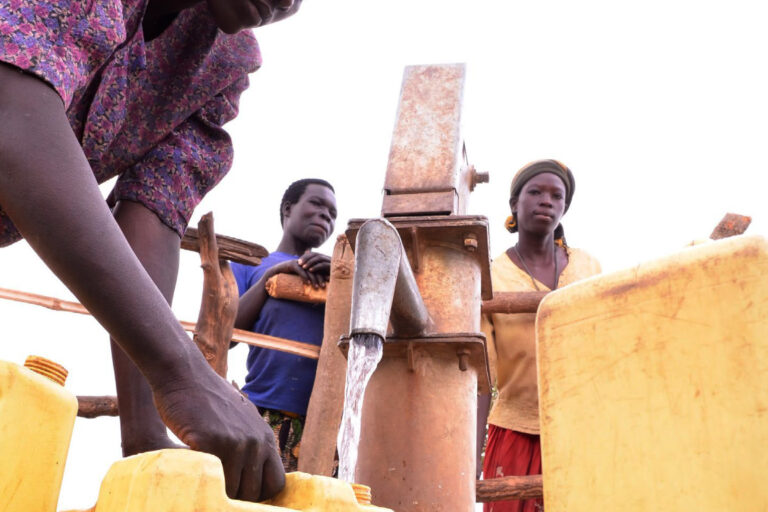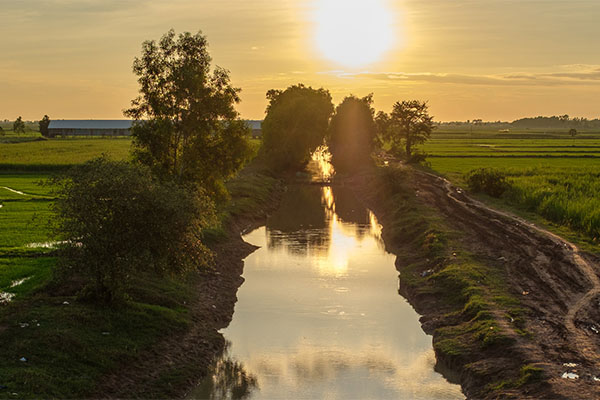
Local Investment, Lasting Impact
Cambodian local leaders pledge to lead SWP’s Water Security Improvement Process.
In Cambodia’s Stung Chinit watershed, 40 leaders from civil society and the private sector have pledged to actively participate in the Sustainable Water Partnership’s Water Security Improvement (WSI) process.
As part of the WSI process’s initial assessment phase, SWP identified local water user groups and organizations in the Stung Chinit watershed. The project engaged representatives from local farmer associations and Farmer Water User Committees (FWUCs), community forestry and fishery groups, private sector rubber plantations, and rice mills about their key concerns regarding water issues in the Stung Chinit watershed and their willingness to get involved.
SWP selected 40 leaders from these user groups (20 women and 20 men) to attend an assessment validation workshop in April 2018. At this workshop, SWP presented the main findings of the various assessments produced for the watershed (stakeholder analysis, water quality testing, land use change analysis, biodiversity evaluation, household water knowledge attitudes and perception survey). The assessment results opened the eyes of many attendees, including Sin Phally, a representative from the Chhouk Khsach FWUC.
“I very much appreciate all the information that SWP provided us regarding the key water risks in our area,” she said. “I understand we all need to be more careful in protecting and using the water for both household consumption and farming, notably in terms of the impacts of using too much fertilizers and pesticides.”
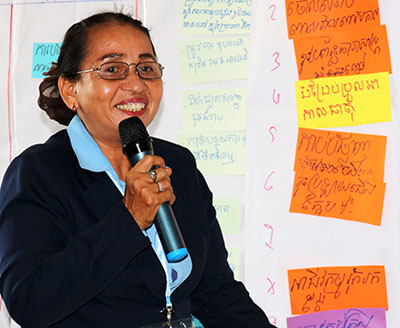
By communicating these ideas to local leaders, SWP hopes to improve understanding of water security in the community at large. Phally, for one, is willing to help. “I will share with my family, my neighbors and my community all that I learnt,” she said.
In keeping with the spirit of partnership and knowledge sharing, these leaders were also asked to pledge their active and voluntary participation in SWP’s WSI process. On April 4, 2018, they endorsed SWP’s eight guiding principles and acknowledged that:
- Achieving tangible benefits for their constituents requires proper assessment and planning;
- Behavior change and management solutions are as important, if not more important, than infrastructure; and
- Collaboration with other local leaders and provincial authorities is essential.
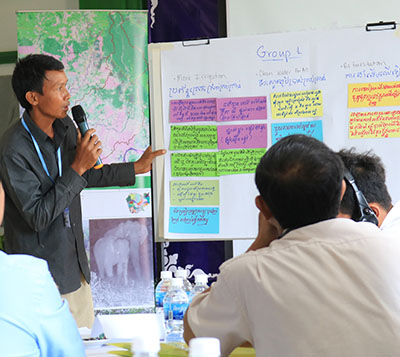
“As a local leader, I am very happy to extend my knowledge and skills to my community, and the young generation that will succeed me in the management of our FWUC,” she said. “I am looking forward to coordinating and collaborating with provincial authorities and other leaders in the SWP water security improvement process.”
In May and June, SWP continued to support local leaders by providing soft-skills trainings. These sessions covered crucial topics like leadership and communications; community mobilization and organization; needs assessment and action planning; community budgeting and financial management; and conflict resolution.
“I will use the obtained knowledge to improve myself first and commit to be a role model in my community,” says Vorng Thin, Chairman of the Bueng Touk Beung Koy Fishery. He especially appreciated the course in conflict management, which “provided [him] a lot of additional skills such as communication, coordination and facilitation to negotiate the resolution of conflicts in [his] community.”
Achieving community buy-in is a critical step to addressing the communities’ water-related challenges, and to achieving SWP’s goals in the Stung Chinit watershed.
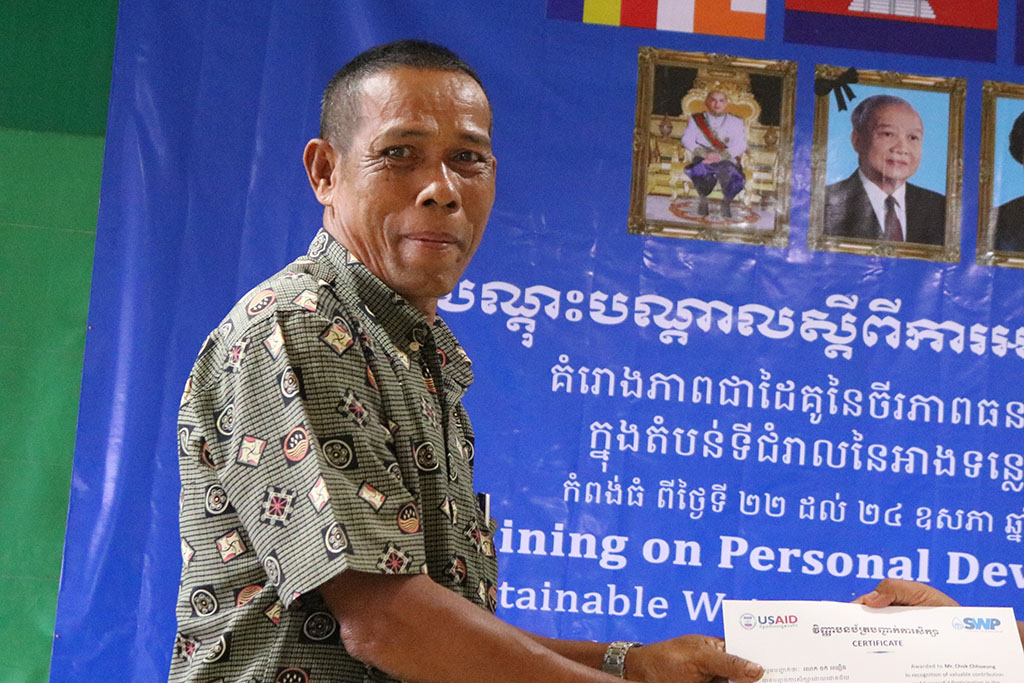
“I am happy to be engaged in the SWP project, as it will provide technical support to improve water security for me and my community,” said Chak Chheung, Chairman of Rice Rong Reung Development Association. “As a local leader, I commit to take all of my responsibilities and to share my knowledge and skills with others to implement project more effectively. I am ready to be part and fully participate in all project implementation stages.”
Feature photo: Thomas de Cian
Related Projects
